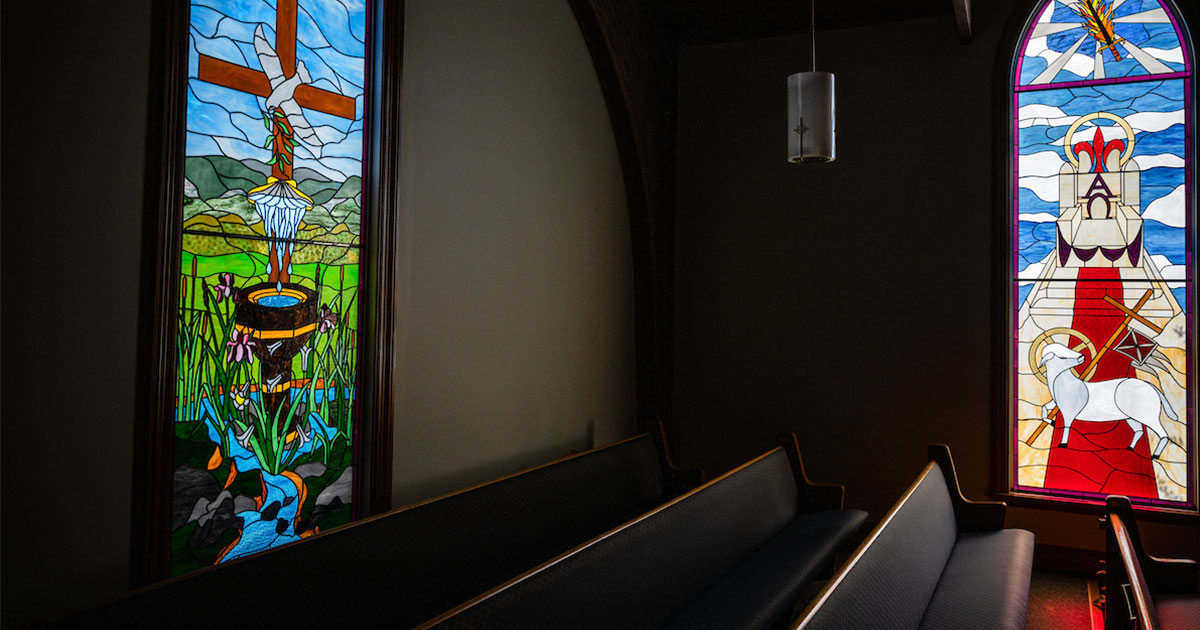
By Mark Hofman
Dear Brothers and Sisters in Christ:
The arrival of the COVID-19 virus has organizations scrambling. Confident in the Lord’s faithfulness, congregations are shifting strategies to deliver the hope of Christ and His grace to a shaken world. The government is seeking to preserve physical and economic life. With regard to the latter, Congress recently passed the CARES Act, which has two important benefits for people who may still be in a position to give charitable gifts this year.
Regardless of whether you wish to give in support of your own congregation, a Lutheran elementary or secondary school (including preschools), any of the Concordia universities and seminaries, missions, human care (mercy work), etc., the following benefits are immediately available:
1. A partial above-the-line deduction for up to $300 in charitable contributions:
This provision encourages individuals to contribute to religious, charitable and educational organizations by creating a new “above the line” deduction for all taxpayers. This deduction will permit them to deduct up to $300 of annual cash contributions regardless of whether the taxpayer itemizes contributions or takes the new, higher standard deduction.
This is applicable for tax years beginning after 2019 and does not sunset after 2020 like the increased limits described below. Again, this new opportunity is available to all taxpayers.
2. Modification of certain limitations on charitable contributions during 2020:
This provision increases the limitations on for charitable contributions made in cash by individuals who itemize, as well as corporations. Such cash contributions must be made during 2020, and this provision does not extend the due date of the 2020 tax return. In addition, the increased charitable limitations for both individuals and corporations are not automatic but must be elected.
For individuals, the 60 percent of adjusted gross income limitation is suspended (removed) for cash contributions made in 2020. Consult with an attorney, financial advisor or qualified accountant before acting on this provision to ensure you are safely maximizing your charitable gifts.
For corporations, the 10 percent limitation is increased to 25 percent of taxable income for cash contributions made in 2020. This provision also increases the limitation on deductions from 15 percent to 25 percent of net income for corporate food donations made during 2020. The 30 percent limitation on non-cash gifts against adjusted gross income remains the same. Again, we recommend strongly that corporations consult with their attorney, financial advisor or qualified accountant before acting on this provision to ensure they are safely maximizing your charitable gifts.
Another provision of the CARES Act places a moratorium on the need for seniors to take a Required Minimum Distribution (RMD) from a Traditional IRA in 2020. Those with IRAs can still support ministry by having a Qualified Charitable Distribution (QCD) made from their IRA to a charity without having to claim the distribution as taxable income. A QCD, however, is not deductible from income taxes owed on other income. Once again, consult with an attorney, financial advisor or qualified accountant before acting on this provision to ensure you are safely maximizing your charitable gifts and protecting retirement assets.
We recognize that, for most Christians, giving to the Lord’s work is not motivated primarily by personal gains or tax breaks. “We love because He first loved us” (1 John 4:19). Still, we are obligated under our Code of Ethics and the Donor Bill of Rights to inform you of decisions made by duly elected officials serving in the “kingdom of the left” that can exert some influence over the timing and level of your giving during these challenging times.
I also want to share a couple additional recommendations for prayerful consideration during this period, culled from several sources:
- Consider giving less-, least- or even un-restricted donations, even temporarily. Loosening up the conditions under which a gift can be used — or choosing less restricted gift options — boosts the ability of congregations, schools and church-related nonprofits to quickly adapt and shift funding to where the dollars can do the greatest good. This shift also lowers their cost to administer gifts.
- If you’ve recently (already) provided a donation that was restricted for something very specific, consider giving the recipient organization (like your congregation, a university or seminary, or RSO) permission to use the gift wherever they feel it will do the most good. Paying salaries and health-care benefits may not be a glamorous kind of donation, but a gift to purchase a specific piece of equipment (as an example) won’t happen if a school or congregation doesn’t have the personnel to use it. As another example, a men’s group that had been giving to support a specific missionary is praying about loosening that restriction, allowing it to help ANY missionary who has an equal or greater need for support.
Again, these are only recommendations to think about, discuss and pray over. They are comparatively small adjustments that can have a multiplying effect.
The Lutheran Church—Missouri Synod, Lutheran Church Extension Fund, Concordia Plan Services, LCMS Foundation and the constellation of LCMS 501(c)(3) organizations are collecting, collating and pushing out information as quickly as possible to help all those whom God is calling to give witness to HIM as the only source of hope and salvation for a fallen, broken world.
Thank you for all you are doing to keep the Gospel light burning. More important, thanks be to God for creating you and renewing you in baptism to be who you already are — His messengers of hope, light and love.
In service to our Lord Jesus, and to you,
Mark D. Hofman, CFRE, MBA
Executive Director, LCMS Mission Advancement
The Lutheran Church—Missouri Synod Note: This communication is for informational purposes only; individuals should seek legal counsel or advice for their own unique situation.